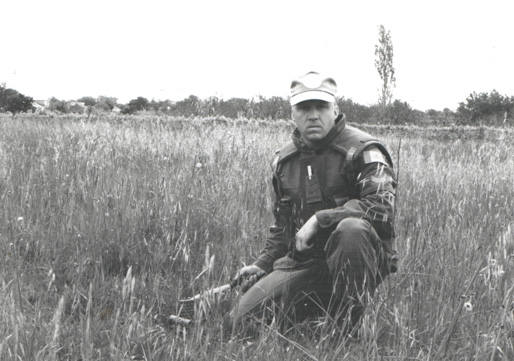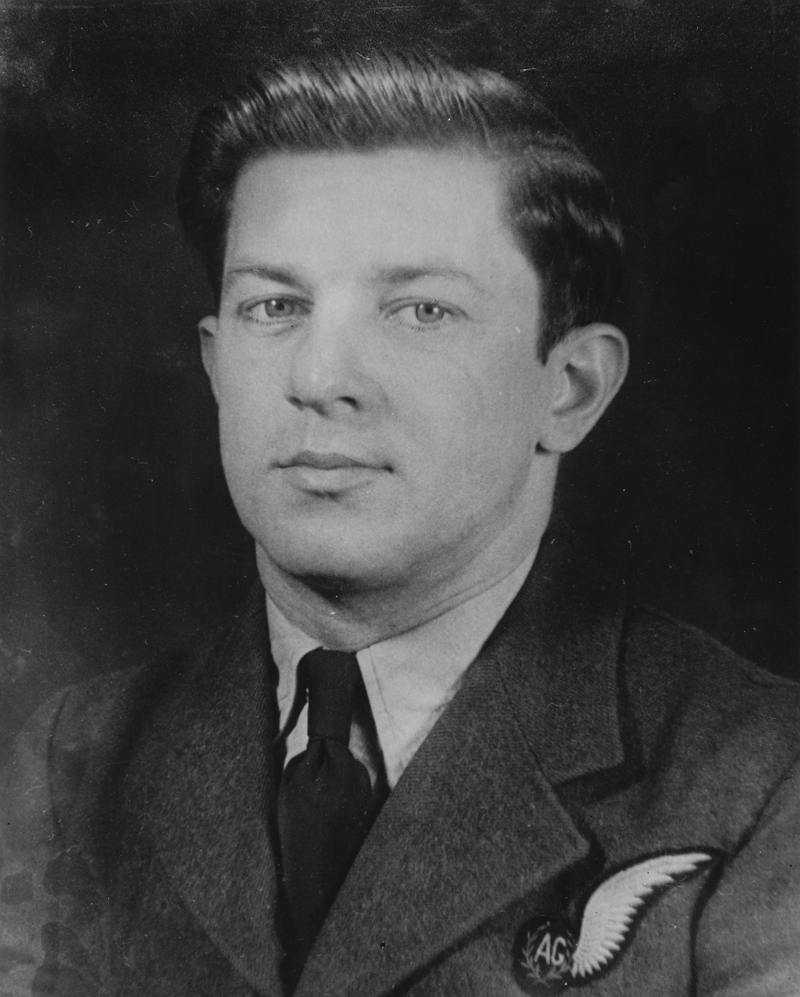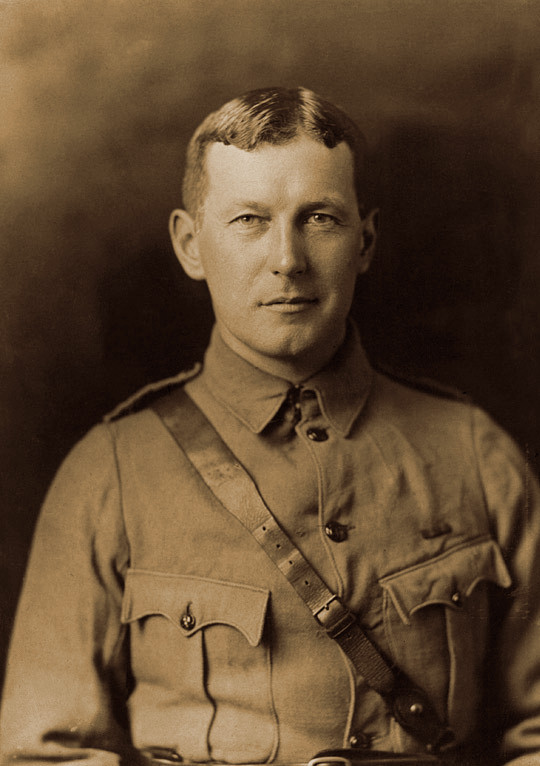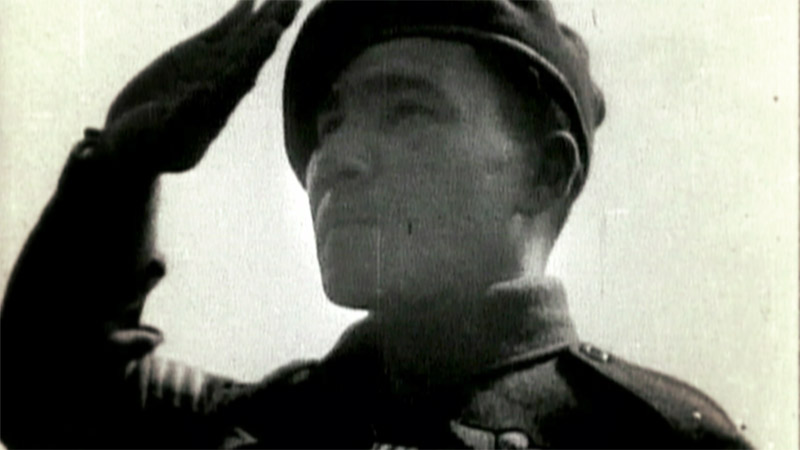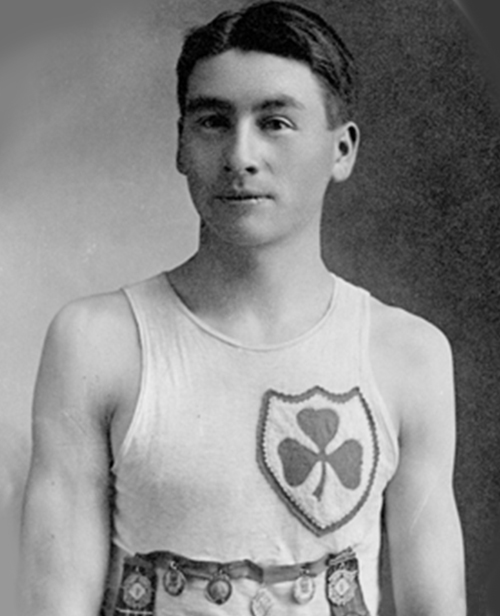Profiles of Courage
Index
Mark Isfeld
Master-Corporal Mark "Izzy" Isfeld of British Columbia worked clearing landmines. He was also known for putting smiles on children's faces in war-torn countries by passing out little handmade dolls made by his mother. Sadly, Mark was killed in a landmine explosion in Croatia in 1994. After his death, his parents, Carol and Brian, worked to continue his legacy. They made dolls for Canadian Armed Forces members to help them spread a little comfort around the world.
Andrew Mynarski
A native of Winnipeg, Pilot Officer Andrew Mynarski earned the military's highest honour for bravery in the Second World War. While on a mission over France, his aircraft came under fire and the pilot ordered the crew to bail out. In an extraordinary act of heroism, Mynarski remained onboard to try to save his friend, Pat Brophy, who was trapped. Unable to release Brophy after numerous attempts, Mynarski reluctantly bailed out of the plane with his clothes and parachute on fire. While Mynarski would succumb to his injuries, Pat Brophy miraculously survived. Andrew Mynarski was awarded the Victoria Cross posthumously for his effort to save another's life.
Elsie MacGill
Elsie MacGill stands out among the hundreds of thousands of women who answered the call to work in industry during the Second World War.
MacGill was the first woman to receive an Electrical Engineering degree in Canada and the first female aircraft designer in the world. In 1942, the aeronautical engineer took on the important job of supervising the Canadian production of Hawker Hurricane fighter planes at the Canadian Car and Foundry Company in Fort William, Ontario. In the process, she would win acclaim for her trail blazing contributions and earn the nickname "Queen of the Hurricanes."
Elsie MacGill stands out among the hundreds of thousands of women who answered the call to work in industry during the Second World War.
John McCrae
While serving as a doctor in the trenches of the First World War, Lieutenant-Colonel John McCrae wrote the poem In Flanders Fields, considered to be the most popular and hauntingly beautiful poems of that era.
In part because of the poem's popularity, the poppy was adopted as the Flower of Remembrance for the war dead of Britain, France, the United States, Canada and other Commonwealth countries.
The symbolic poppy and John McCrae's poems are still linked and the voices of those who have died in war continue to be heard each Remembrance Day.
Tommy Prince
Sergeant Tommy Prince is one of Canada's most decorated First Nations soldiers. During the Second World War, he performed astonishing acts of bravery during missions in Italy and France. Sergeant Prince was subsequently summoned to Buckingham palace, where King George VI decorated him with both the Military Medal and, on behalf of the president of the United States, the Silver Star with ribbon. Tommy Prince was one of only 59 Canadians who were awarded the Silver Star during the Second World War. Only three of this group also possessed the Military Medal.
William Hall
William Hall, who served on the British Royal Navy Ship HMS Shannon, was the first Black person–and the first Nova Scotian–to receive the Victoria Cross (VC). The VC is a very rare honour which is considered to be the British Empire's highest award for military valour. Hall earned his VC for exceptional valour during the siege of Lucknow, India, in 1857. He was one of only two gunners left alive and at their post, but their actions allowed the soldiers of the British garrison to escape the siege.
Alexander Decoteau
Alexander Decoteau was born on the Red Pheasant First Nation in Saskatchewan in 1887. He would become our country's first Indigenous police officer when he joined the Edmonton force in 1909. A remarkable distance runner, he also competed in the 5000 m race at the 1912 Olympics in Stockholm. Decoteau went on to serve in the First World War, losing his life October 30, 1917, during the bitter Battle of Passchendaele.
- Date modified:
